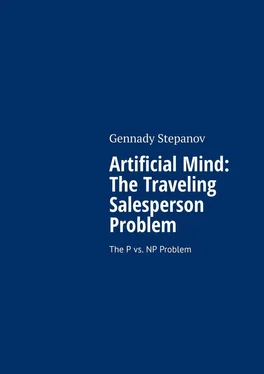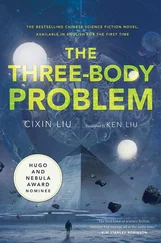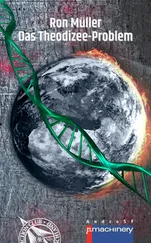Artificial Mind: The Traveling Salesperson Problem
The P vs. NP Problem
Gennady Stepanov
© Gennady Stepanov, 2020
ISBN 978-5-0051-4274-0
Created with Ridero smart publishing system
This book, which I offer to inquisitive readers, deals with the algorithm-theory problem of enumeration considered in discrete mathematics.
This book is part of a series that describes an artificial-mind model I developed based on the philosophy of the Kantian apriorism. This model imitates the human mind and human thinking.
The question of whether the complexity classes of P and NP problems are equal, also known as the enumeration problem, has been the central open problem in algorithm theory for more than four decades.
An affirmative answer to that question would mean it is theoretically possible to solve many complex problems far faster than they can be solved today.
The lack of a solution to the central problem of modern discrete mathematics inhibits the development of not only discrete mathematics but of mathematics as a whole.
This applies to many areas of study of mathematical structures in algebra, topology, geometry, and suchlike fields.
As with other enumeration problems, a feature of the traveling salesperson problem (TSP) is that it is fairly easy to obtain its solution. The hardest part is proving the optimal solution (finding the best solution).
This book considers a seamless method for exactly solving combinatorial-optimization problems (I call it an effective combinatorial-optimization method). I developed the method using, as an example, the TSP, an NP-hard problem in combinatorial optimization.
Exact, effective methods for solving NP problems are yet unknown.
In applying my effective combinatorial-optimization method, I was able to find an indirect indicator that the resulting solution is optimal.
It has been proved that a method that allows you to effectively solve an NP problem can also be applied to solving other NP problems.
My research yielded a certain relationship for the TSP. This relationship is natural, objective, and scientifically novel.
My effective combinatorial-optimization method is based on this relationship and uses the indirect criterion I found for determining the best solution. The method is also applicable to solving a variety of other NP problems.
I claim I might have solved the central problem of modern discrete mathematics – the P versus NP problem. P = NP.
This book opens a series devoted to developing an anthropomorphic artificial mind as a new line of research different from artificial intelligence (AI), whether strong or weak. This series of my books offers fundamentally novel insights and is the only such series in the scientific world.
Once created, an artificial mind similar to the human mind will give humanity unlimited possibilities.
The artificial mind will have a different energy source. This energy source will not compete with the food chain of various biological beings, including humans.
The artificial mind will be able to live in those environments where humans cannot. It won’t need air to breathe. It will be able to live at almost any ambient pressure (from zero to hundreds of atmospheres) and will be easier to protect from heavy radiation.
The artificial mind will directly interact with computer and data-transfer systems.
The artificial mind can have sensory organs that humans don’t have. The functional spectra of these organs (hearing, seeing in the infrared, ultraviolet, and X-ray spectra; smell and tactile sensations) could be far wider than those in humans.
The artificial mind could have a body that differs from the human body in size, shape, and number and shape of limbs (manipulators).
The artificial body won’t age (it will be replaceable).
The artificial mind can be preserved and restored when lost, meaning the practical immortality of the mind (the individual).
The artificial mind can fully exist in the virtual world (a matrix).
The artificial mind can travel through space at the speed of light (between transmitter and receiver).
The artificial mind can function in a different timeline (e.g., one accelerated several times or, conversely, slowed down many times).
These possibilities will allow a manifold increase in the number of intelligent creatures in Russia without leading to overpopulation, and that in turn will increase Russia’s intellectual potential and accelerate scientific progress across the country.
Russia would be able to actively explore space and populate new planets, making distant space expeditions, terraforming planets to make them habitable for Earth life.
The artificial mind would help raise the standard of living in Russia, and improve the efficiency of human life, making for better use of natural resources.
My term artificial mind is chiefly based on solving the P versus NP problem.
Today the term artificial mind is understood as AI, a kind of intelligent system or program that has limitedintellectual functions and can solve a narrow range of problems – that is, has a limited scope of application.
I believe there are fundamental differences between this definition of AI and that of the artificial mind.
Modern strong AI is, basically, a software program capable of thinking and being aware of itself – of itself as a separate entity – and in particular, of understanding its thoughts as a human would.
By contrast, the artificial mind is, in my opinion, not a program. It is a mechanism – mostly analogue one. A primary role in its development should be played by engineers in various fields of science and technology, not by programmers. The central role should go to system technology engineers and developers of various analogue and digital devices.
Programmers’ role is secondary, and it’s mainly of an applied nature, finding use in physical implementation of the artificial mind’s various functions.
I think the contemporary line of research called AI is a dead end. AI achievements can, at best, be applicable to the artificial mind only as a complement.
My Kantian term pure artificial mind denotes the absolute mind, or theoretical reason according to Kant, that is had not only by people but by other intelligent creatures, both on the Earth according to Kant and in the universe.
I believe, as Kant did, that we cannot assert that rationality (as an abstract metaphysical definition of the phenomenon of the human mind) can exist only in the human body on Earth.
If you ask whether the human being (a rational being) could appear in a different environment, in a different body, with different physical laws, perhaps in a space with a different number of dimensions, with a whole lot of other different conditions, then we have no reason to answer that question negatively.
You can suppose the manifestations of intelligence in that other creature would be in many ways different from those in the human being.
In my opinion, the phenomenon of rationality (as a kind of abstract, indefinite, yet metaphysically intuitive one) can exist in a wide possible range in the universe; therefore, it can be considered an ideal phenomenon according to Kant – pure reason.
It’s not autonomous in its full understanding (according to Kant, it needs a body). But the body and its properties are only the reason for the nature of how intelligence is manifested, which makes it practical according to Kant but does not determine its very existence.
Конец ознакомительного фрагмента.
Читать дальше












